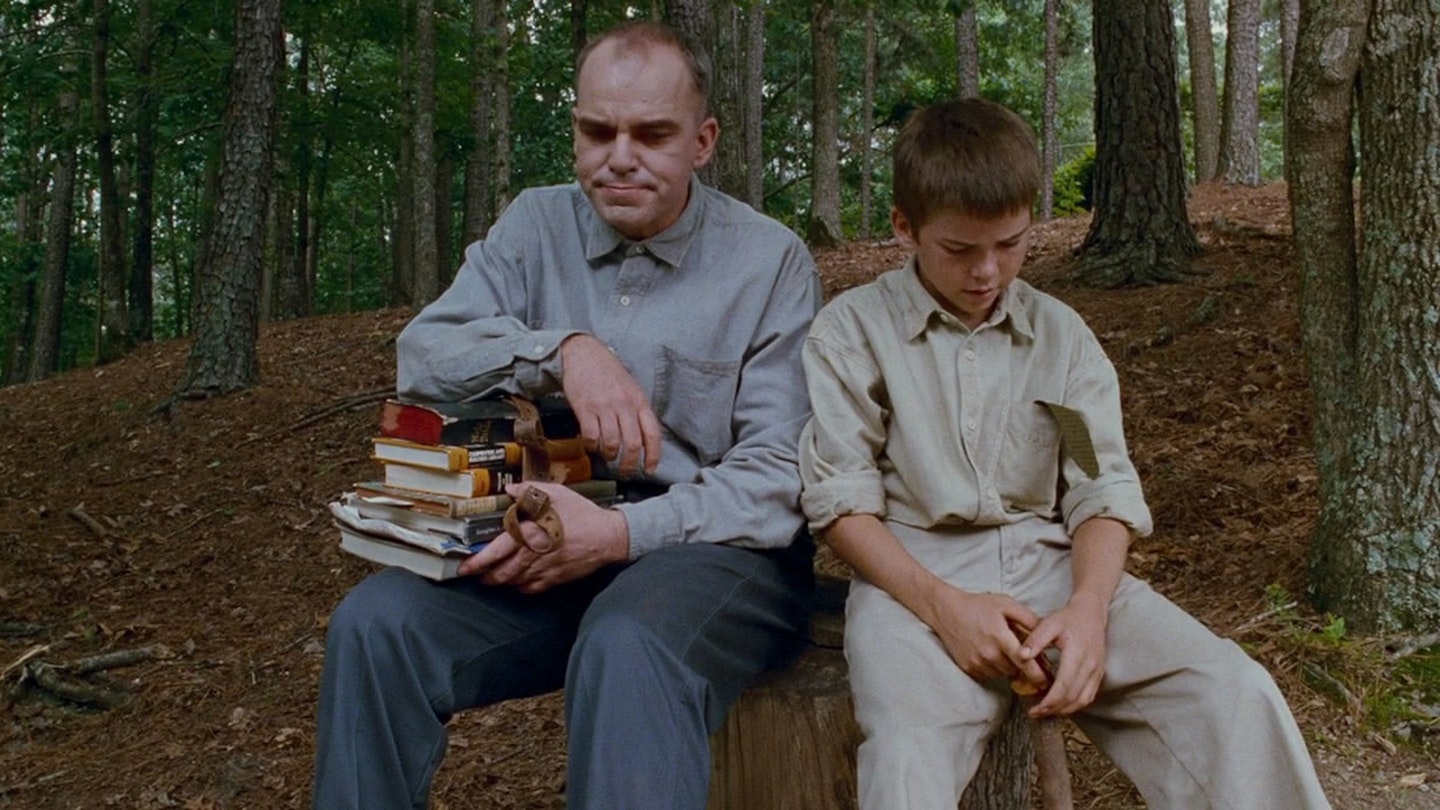Astonishing. Both to watch, and to think that this film won Billy Bob Thornton the 1997 Best Adapted Screenplay Oscar, but is only now getting a UK release. And so, rather than slip into the netherworld of DTV or satellite premieres, Sling Blade emerges to take its position among the top ten films of 1998.
Thornton, making his directorial debut, also stars as Karl, a simple-minded man who, after an extreme upbringing by zealous parents, has spent 25 years in an Arkansas psychiatric asylum for killing his mother and her lover with the titular lethal weapon.
Judged to have been incarcerated long enough to make him well again, Karl is released. Completely institutionalised, he'd rather stay - but go he must and, having nowhere else to go, returns to his small town home. There he immediately befriends a young boy, Frank (Lucas Black), who introduces Karl to his widowed mother Linda (Natalie Canerday) and, reluctantly, to her (no) good-ol'-boy partner Doyle (Yoakam). Although a man of few words, Karl is a gifted mechanic and finds work, with the help of the asylum's director, then gets offered lodgings with Frank and his ma. But at the house he finds great conflict in the shape of Doyle's cruel rages against himself, Frank and his mom, and even Vaughan (Ritter), a gay man Linda works with and confides in.
Filmed in muted colours yet populated by dazzling characters, this is an ensemble piece oozing quality. Country star Yoakam and Black (best known as Caleb in TV's chilling American Gothic) are both stand-outs playing bad-to-the-bone and innocent youth respectively. Canerday brings great heart to the naively kind mom, and Ritter immense strength to the bashful and outcast homosexual.
Around this core spin a dizzying array of bit-parts including J.T. Walsh as Karl's creepy fellow inmate, Christy Ward as his would-be date, a troupe of real musos downplaying as Doyle's buddies in the worst band in the world plus cameos from Robert Duvall as his father and Jim Jarmusch as the paper-hatted Mr. Frostee Cream man.
In the eye of this menacing and frequently hilarious maelstrom is the pivotal and gobsmacking performance of Thornton himself - transformed into a stooped and grimacing cross between Charlie Chaplin and Private Pile, with a voice like Popeye - as a man whose inherent goodness (and love for French fried 'taters) is balanced by the threat of extreme violence.
Behind the camera Thornton turns oddballs into heroes, behind the script he makes a very simple tale work on so many levels - as morality play, as black comedy, and hard-hitting social commentary. His screenplay will scare you. It will make you laugh and cry. And it will make you think long and hard about the last time you saw a movie this good.
